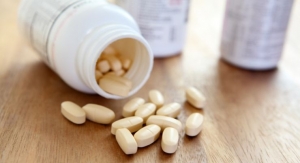Dilip Ghosh, PhD, FACN, nutriConnect12.03.15
The global nutraceutical and functional food market is currently experiencing a period of slower growth following the economic recession, but the market is likely to remain in a growth phase, particularly in countries like India, China, Brazil, Russia, etc.
The Indian nutraceuticals industry is expected to grow at 20% to $6.1 billion by 2019-2020 due in part to rising awareness about health and fitness and changing lifestyles, according to a report from RNCOS. Currently, the nutraceuticals industry in India is worth about $2.2 billion and is mainly focused in the southern region, followed by the eastern region with three major states of Andhra Pradesh, Tamil Nadu and West Bengal.
Why India?
India has been identified as a high potential market. Recent market research has shown that evidence-based natural products can work in this huge and rapidly developing country. Here are some major points of consideration:
Herbal medicines are accepted by consumers and their interest drives recommendations by pharmacists as well as general physicians.
There is a clear level of interest among doctors (internationally) in specific clinically trialed products (with sufficient credentials to be considered to deserve the label of “clinically proven medicines”). Indian trials would enhance the product’s acceptance, both in terms of the level of positive attitude by doctors toward the product as well as drawing additional supporters whose support is contingent on having local trials.
Specialists have a similar prescribing behavior with a current focus on allopathic medicines. Indifference toward herbal medicines by specialists is driven by lack of clinical evidence and certifications. Clinical evidence for herbal medicines would be particularly compelling to specialists.
Pharmacists freely recommend OTC/herbal medicines, nutraceuticals and dietary supplements to customers who are seeking advice on general well-being or treatment of ailments in the initial stages. Incentives/margins are contributing as well as the acknowledged strong interest in herbal medicines by some consumers.
Ayurvedic/Unani doctors obviously represent the healthcare professional type with the highest current affinity to herbal medicines, due to their direct comparison to Ayurvedic medicines.
Foreign evidence-based products are likely to be perceived as having superior quality.
Drivers & Challenges
Companies can develop trust by meeting product quality and service levels, as well as being flexible, reliable, consistent, trustworthy, loyal and responsive (solving problems quickly and smoothly).
Strong ties to customers is important and can be achieved with a high frequency of communication (interact more than twice per week), and maintaining a familiar, trusted, track record.
Maintain communication by picking up the phone and visiting regularly.
Demonstrate commitment by making the supplier/customer feel they are important and let them know you value their business. Ultimately, you want to invest in the relationship.
The Way Forward
I believe despite the lowest per capita GDP in the BRIC regions, India still represents an extremely favorable market for the growth of clinically-proven natural product ranges. Mass-market retailing is just getting off the ground in India with FDI approvals and can represent a great way to market nutraceuticals.
The Indian government has recently implemented the FSSAI regulations (Food Safety and Standards Authority of India) and although implementation parameters are not clearly understood by everyone in the industry, they are being reviewed.
Companies are still exploring stronger health claims and positioning their clinically-proven natural medicines. In addition, the other major opportunity is to leverage India’s knowledge based economy, with considerable strength in life science research and development.
Piggybacking on generic product development of pharmaceuticals, Indian research and technology is generally much more developed than their global counterparts in the areas of fermentation processes, plant extraction and even chemical synthesis. In the end, Indian companies need to improve the bi-directional flow of intellectual property when partnering with international organizations to add more value to the industry.
Note: This article was partially adapted from Ghosh D, NuFFooDS Spectrum, May 2015.
Dilip Ghosh, PhD, FACN
nutriConnect
Dilip Ghosh, PhD, FACN, is director of nutriConnect, based in Sydney, Australia. He is also professionally involved with Soho Flordis International, the University of Western Sydney, Australia, and is an Honorary Ambassador with the Global Harmonization Initiative (GHI). Dr. Ghosh received his PhD in biomedical science from University of Calcutta, India. He has been involved in drug-development (both synthetic and natural) and functional food research and development both in academic and industry domains. Dr. Ghosh has published more than 60 papers in peer-reviewed journals, and he has authored two recent books, “Biotechnology in Functional Foods and Nutraceuticals,” and “Innovation in Healthy and Functional Foods,” under CRC Press. His next book, “Clinical Perspective of Functional Foods and Nutraceuticals” is in press. He can be reached at dilipghosh@nutriconnect.com.au; www.nutriconnect.com.au.
The Indian nutraceuticals industry is expected to grow at 20% to $6.1 billion by 2019-2020 due in part to rising awareness about health and fitness and changing lifestyles, according to a report from RNCOS. Currently, the nutraceuticals industry in India is worth about $2.2 billion and is mainly focused in the southern region, followed by the eastern region with three major states of Andhra Pradesh, Tamil Nadu and West Bengal.
Why India?
India has been identified as a high potential market. Recent market research has shown that evidence-based natural products can work in this huge and rapidly developing country. Here are some major points of consideration:
Herbal medicines are accepted by consumers and their interest drives recommendations by pharmacists as well as general physicians.
There is a clear level of interest among doctors (internationally) in specific clinically trialed products (with sufficient credentials to be considered to deserve the label of “clinically proven medicines”). Indian trials would enhance the product’s acceptance, both in terms of the level of positive attitude by doctors toward the product as well as drawing additional supporters whose support is contingent on having local trials.
Specialists have a similar prescribing behavior with a current focus on allopathic medicines. Indifference toward herbal medicines by specialists is driven by lack of clinical evidence and certifications. Clinical evidence for herbal medicines would be particularly compelling to specialists.
Pharmacists freely recommend OTC/herbal medicines, nutraceuticals and dietary supplements to customers who are seeking advice on general well-being or treatment of ailments in the initial stages. Incentives/margins are contributing as well as the acknowledged strong interest in herbal medicines by some consumers.
Ayurvedic/Unani doctors obviously represent the healthcare professional type with the highest current affinity to herbal medicines, due to their direct comparison to Ayurvedic medicines.
Foreign evidence-based products are likely to be perceived as having superior quality.
Drivers & Challenges
- Market drivers include demography, economic viability, availability of human resources/technical capabilities and local incentives.
- The major challenges are related to product approval, registration, health claims evaluations and obtaining final licenses.
- Politics are always local and impact foreign commercial investment.
- Finding the right partners for a wide range of products through healthcare professional channels can be challenging.
- Indian marketer and consumer awareness of conventional evidence-based nutraceutical ingredients and products is severely limited.
- There is a lack of quality standardization (Pharma-grade GMP) of Indian manufacturing units for well-controlled markets, particularly for Europe.
- There is a lack of quality analytical services under one roof.
- India has a very complex company taxation and audit system.
- There is currently a poor financial service sector.
- IP infringement and brand liquidation are constant concerns and threats.
- Local contract manufacturing is lucrative but formulation integrity and consistent quality maintenance are paramount challenges.
- There can be difficulties in aligning corporate and cultural differences with local partners.
Companies can develop trust by meeting product quality and service levels, as well as being flexible, reliable, consistent, trustworthy, loyal and responsive (solving problems quickly and smoothly).
Strong ties to customers is important and can be achieved with a high frequency of communication (interact more than twice per week), and maintaining a familiar, trusted, track record.
Maintain communication by picking up the phone and visiting regularly.
Demonstrate commitment by making the supplier/customer feel they are important and let them know you value their business. Ultimately, you want to invest in the relationship.
The Way Forward
I believe despite the lowest per capita GDP in the BRIC regions, India still represents an extremely favorable market for the growth of clinically-proven natural product ranges. Mass-market retailing is just getting off the ground in India with FDI approvals and can represent a great way to market nutraceuticals.
The Indian government has recently implemented the FSSAI regulations (Food Safety and Standards Authority of India) and although implementation parameters are not clearly understood by everyone in the industry, they are being reviewed.
Companies are still exploring stronger health claims and positioning their clinically-proven natural medicines. In addition, the other major opportunity is to leverage India’s knowledge based economy, with considerable strength in life science research and development.
Piggybacking on generic product development of pharmaceuticals, Indian research and technology is generally much more developed than their global counterparts in the areas of fermentation processes, plant extraction and even chemical synthesis. In the end, Indian companies need to improve the bi-directional flow of intellectual property when partnering with international organizations to add more value to the industry.
Note: This article was partially adapted from Ghosh D, NuFFooDS Spectrum, May 2015.
Dilip Ghosh, PhD, FACN
nutriConnect
Dilip Ghosh, PhD, FACN, is director of nutriConnect, based in Sydney, Australia. He is also professionally involved with Soho Flordis International, the University of Western Sydney, Australia, and is an Honorary Ambassador with the Global Harmonization Initiative (GHI). Dr. Ghosh received his PhD in biomedical science from University of Calcutta, India. He has been involved in drug-development (both synthetic and natural) and functional food research and development both in academic and industry domains. Dr. Ghosh has published more than 60 papers in peer-reviewed journals, and he has authored two recent books, “Biotechnology in Functional Foods and Nutraceuticals,” and “Innovation in Healthy and Functional Foods,” under CRC Press. His next book, “Clinical Perspective of Functional Foods and Nutraceuticals” is in press. He can be reached at dilipghosh@nutriconnect.com.au; www.nutriconnect.com.au.




























